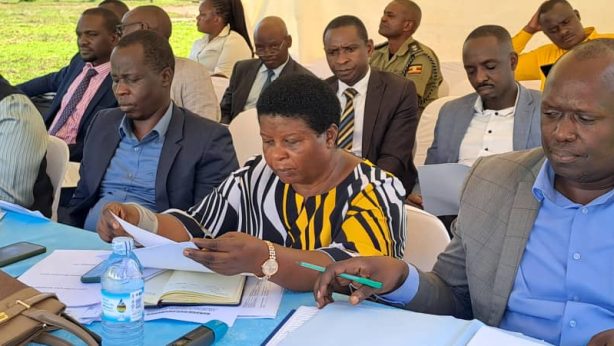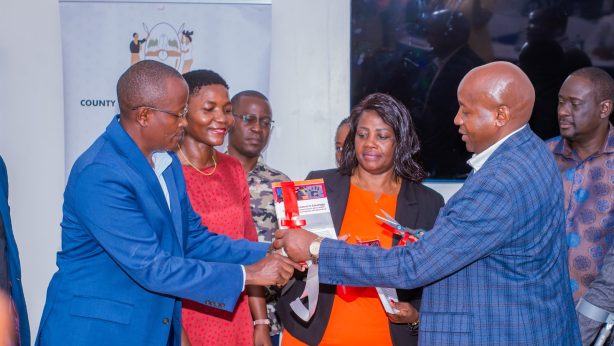Improving under pressure: antifragility, hubris and humility
During the first five decades of my life’s journey, I’ve had two near-death experiences: I almost drowned in a pool and narrowly avoided getting my skull crushed by a car tire, all before I was five years old. About 8 years ago, I was treated for depression for about 9 months. In almost twenty-five years of professional work, I have been a consultant, a senior banker and a future-oriented researcher and adviser. At the moment, I am an ‘accidental activist’ who enjoys the privilege of working at Twaweza a little too much. Here are three ideas that have, with wonderful serendipity, shaped my life’s journey this far — antifragility, hubris and humility.
Antifragility
Antifragility is a concept coined by author and investor, Nassim Nicholas Taleb. Things that are antifragile get stronger or better when put under pressure or stress.
As Taleb writes in his book ‘Antifragile: Things That Gain From Disorder’, “Some things benefit from shocks; they thrive and grow when exposed to volatility, randomness, disorder, and stressors and love adventure, risk, and uncertainty…Antifragility is beyond resilience or robustness. The resilient resists shocks and stays the same; the antifragile gets better.”
Think of carbon that becomes a diamond under the right conditions of pressure and stress. Or of our immune system when it is exposed to germs at a young age and so learns how to fight them later in life.
My two near-death experiences and an episode with depression have made me not so much robust or resilient, but antifragile. I embrace uncertainty, experiment, tinker, take many smallish risks, especially with ideas, and I keep my options open. Under pressure, I become more focused, subtle and strategic than would otherwise be the case. This ongoing process has also helped me to recognize, and then try to reduce or avoid the pitfalls of hubris.
Hubris
What is hubris? It is “excessive pride and confidence…an overestimation of one’s own competence, accomplishments or capabilities.” In October 2019, Tanzania’s former president Jakaya Kikwete described it beautifully in Kiswahili as kujimwambafai!
I am a six-foot-tall, eldest son born of a father who was one of Tanzania’s first medical doctors. My mother is among the most creative educators in the country. We hail from a community in northwestern Tanzania that has a reputation for thinking of itself as a cut above the rest. What a potent combination of ingredients for an intoxicating, and dangerous, dose of hubris!
Hubris is what makes us lord it over others, and especially those over whom we have some authority or a degree of financial or social advantage. We don’t display hubris for the greater good of society, we do it for purely selfish reasons, to puff ourselves up in the eyes of those around us.
Hubris, unchecked, destroys character and community. That is why, when Roman emperors of old revelled in the inebriating adulation of their subjects during their triumphal marches into the city, they were reminded by an annoying but vital co-passenger in their golden chariots whose job it was to whisper in the imperial ear, “Remember! You are mortal!”
Hubris, unchecked, destroys character and community.
Humility
The antidote for hubris is humility. “Humility is not thinking less of yourself, but thinking of yourself less” according to Rick Warren in “The Purpose Driven Life”.
A Jewish Rabbi (teacher), Pini Dunner, argues that “humility is to place others first; it is to appreciate others’ worth as important….It is not in denial of your talents and gifts but to recognize them and live up to your worth and something greater. It is in the service to others that is the greatest form of humility.”
I got a powerful lesson in humility in July 1987 when, as Chair of the Students Representative Council at my high school in Swaziland, I was asked to lead a delegation of students to meet His Majesty King Mswati III. I was to choose who went to thank the King for visiting to our school a few months earlier. I sought to court favour with the coolest of my peers and picked eight boys to accompany me. My classmate, Tina Gourlay, protested my blatant favouritism and corruption, to Dick Eyeington, our headmaster. He called the two of us his office and said very gently to me, “Aidan, in your heart of hearts, you do know that she is right, don’t you?”
Of course, she was! So with deep and well-deserved embarrassment, I rewrote, with Tina’s magnanimous help, the list of students who went to visit the King later that week. That humbling experience has stayed with me and informs how I act in countless situations. Thank you, Tina!
Improving under pressure
At Twaweza, we dedicate our energy and passion to promoting government that is open, inclusive and accountable to all those citizens in whose service it exists and from whom it draws its legitimacy. Reminding government leaders of this sacred duty and encouraging them to fulfil it can be risky and acutely uncomfortable.
However, having survived a near-drowning, a head butt with a car tire and a personal encounter with depression, I feel quite antifragile. The stress is helping me to improve. I am also working on checking and curing my hubris. Moreover, in this time of almost overwhelming uncertainty, I am quietly certain of the purpose of my life: that of being, humbly, in the service of others.
This post was written by Aidan Eyakuze, Executive Director of Twaweza East Africa and it was published on LinkedIn and Empower.


